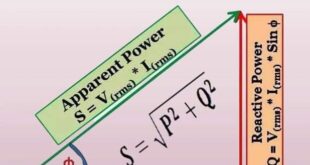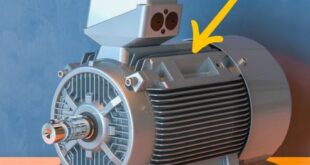Efficient Voltage Control Strategies for Modern Power Systems Introduction Voltage control is a crucial aspect of power system operation and stability. In a power system, maintaining the voltage within a specified range is essential for ensuring efficient power delivery and preventing damage to equipment. Voltage control becomes even more critical …
Read More »Electrical Power – Its Types and Units
Electrical Power – Its Types and Units Introduction Electrical power is a fundamental concept that plays a pivotal role in modern society. From lighting our homes to powering vast industries, electrical power has become an indispensable part of our daily lives. In this article, we will explore what electrical power …
Read More »Why is motor rating kW not in kVA?
Answer: Motor rating in kilowatts (kW) represents real power, which is the actual power consumed for mechanical work. Kilovolt-amperes (kVA) would include both real power and reactive power, but for motors, the emphasis is on real power. Reasoning: Real Power vs. Apparent Power: Kilowatts (kW) represent real power, reflecting the …
Read More »Why is the transformer rated in kVA, not in KW?
Answer: Transformers are rated in kVA (kilo-volt-amperes) instead of kW (kilowatts) because kVA accounts for both real power (kW) and reactive power, which is essential for sizing and designing electrical systems. Reasoning: Transformers are devices used to transfer electrical energy between circuits. They handle both real power (expressed in kilowatts, …
Read More » Electrical Engineering World Wiring a Brighter Tomorrow!
Electrical Engineering World Wiring a Brighter Tomorrow!



